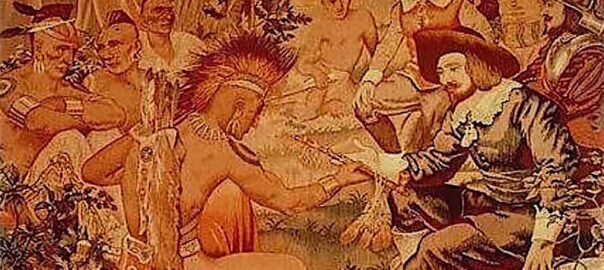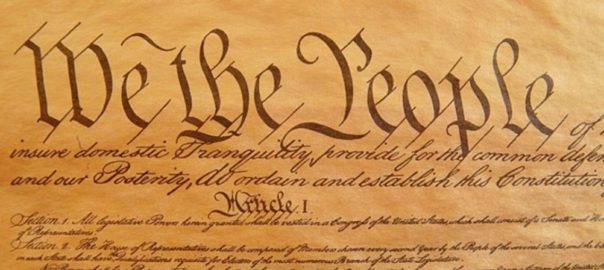
The United States of America is – like every person we meet and any nation we study – beautiful and broken. Her history is filled with saints and sinners, imperial oppression and unprecedented liberty. As we gather around tables and express our gratitude to God and each other, here are some paradoxical facts that are part of our historical tapestry:
- The First Thanksgiving was celebrated in Plymouth with genuinely cordial relations with the local tribes. The Pilgrims owed their survival to Squanto and others that helped them gather, harvest, and hunt well.
- Just before the Pilgrims came ashore (1620), the colony of Virginia began importing African slaves for work in the tobacco fields (1619), inaugurating a history that only a Civil War and later Civil Rights Movement would change.
- Maryland and Pennsylvania were colonial havens for Roman Catholics and Quakers respectively, and both colonies promoted freedom of religion.
- Meanwhile in the Massachusetts Bay Colony, religious dissenters such as Anne Hutchinson and Roger Williams were exiled or punished severely into the 1690s.
- The Methodists prohibited members from owning slaves as of 1757; alas, a century later this dynamic tradition was divided in to Northern and Southern branches…as were almost all denominations.
- Ellis Island processed millions of immigrants in the late 19th and early 20th centuries. Though many faced prejudices and obstacles assimilating into a very White and Protestant America, within a few generations, most of their descendants were celebrating the opportunities the New World had to offer.
- At the same time immigrants were gazing happily at the Statue of Liberty upon their arrival in the USA, millions of Native Americans and African Americans faced continued oppression, prejudice, and legal barriers to full inclusion into American society.
The USA continues as an experiment in virtue-based liberty, with a history of hospitality and generosity as well as nativism and xenophobia. As we rightly give thanks, let’s rededicate ourselves to building a land of access, equity, and opportunity for all.

